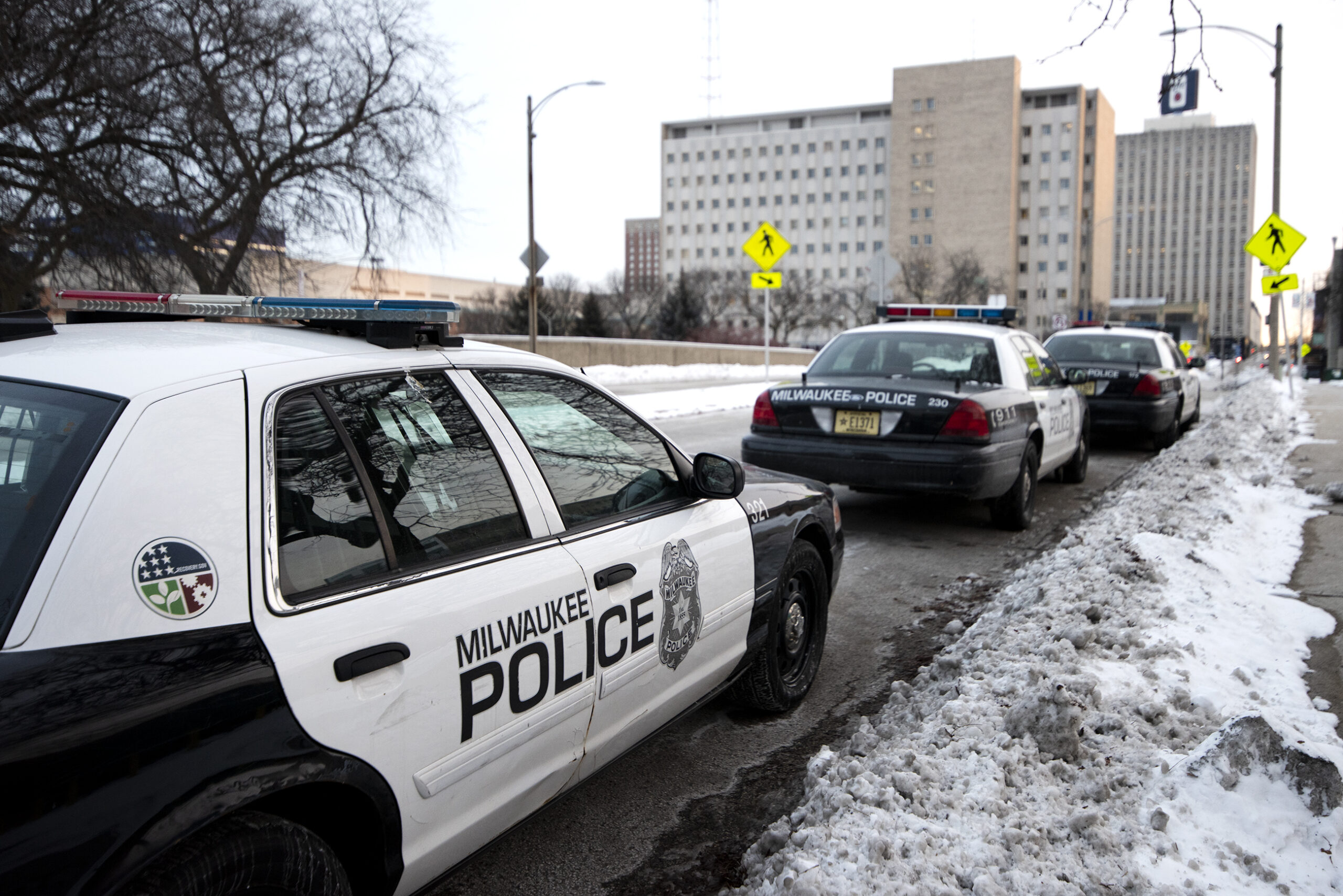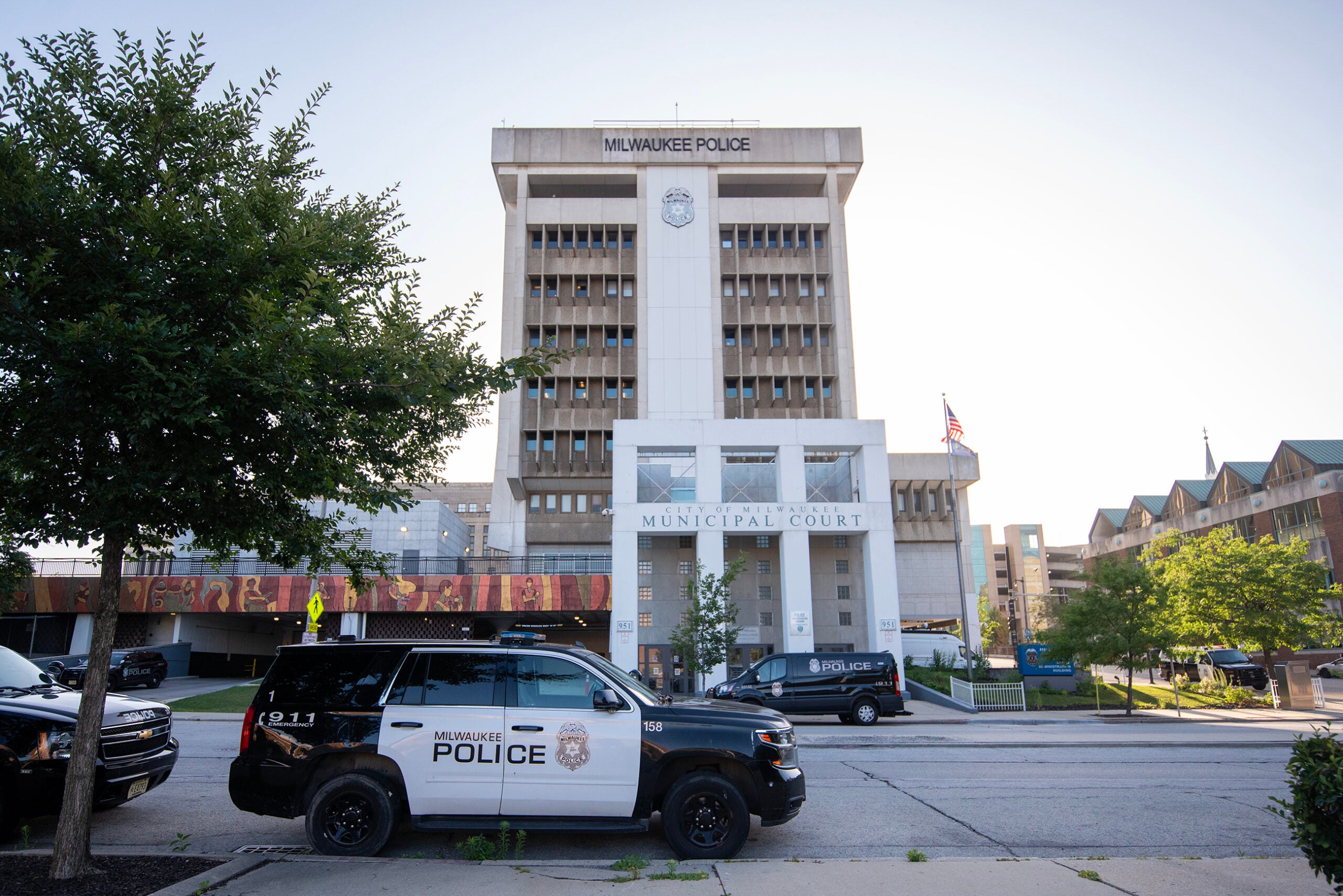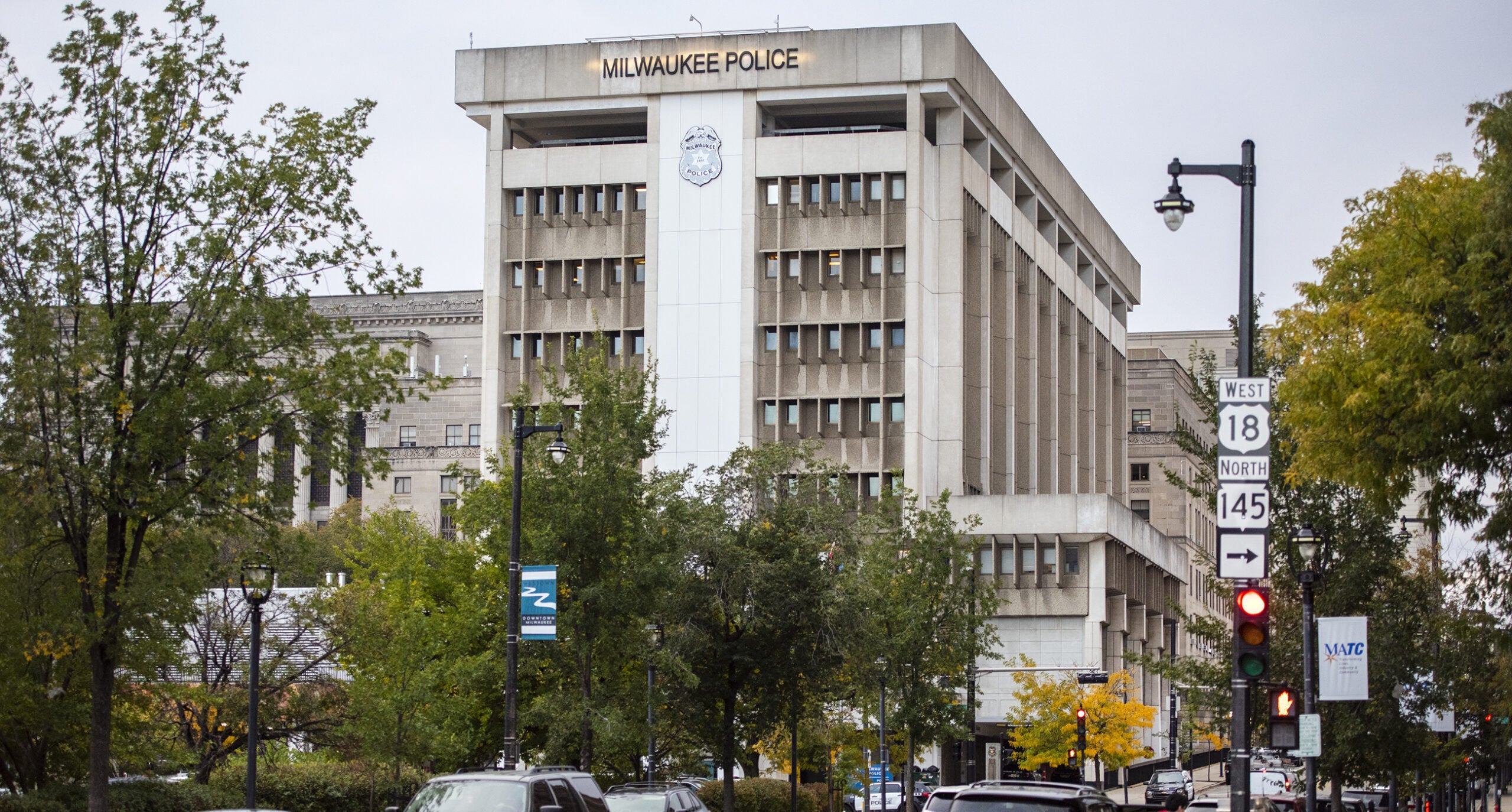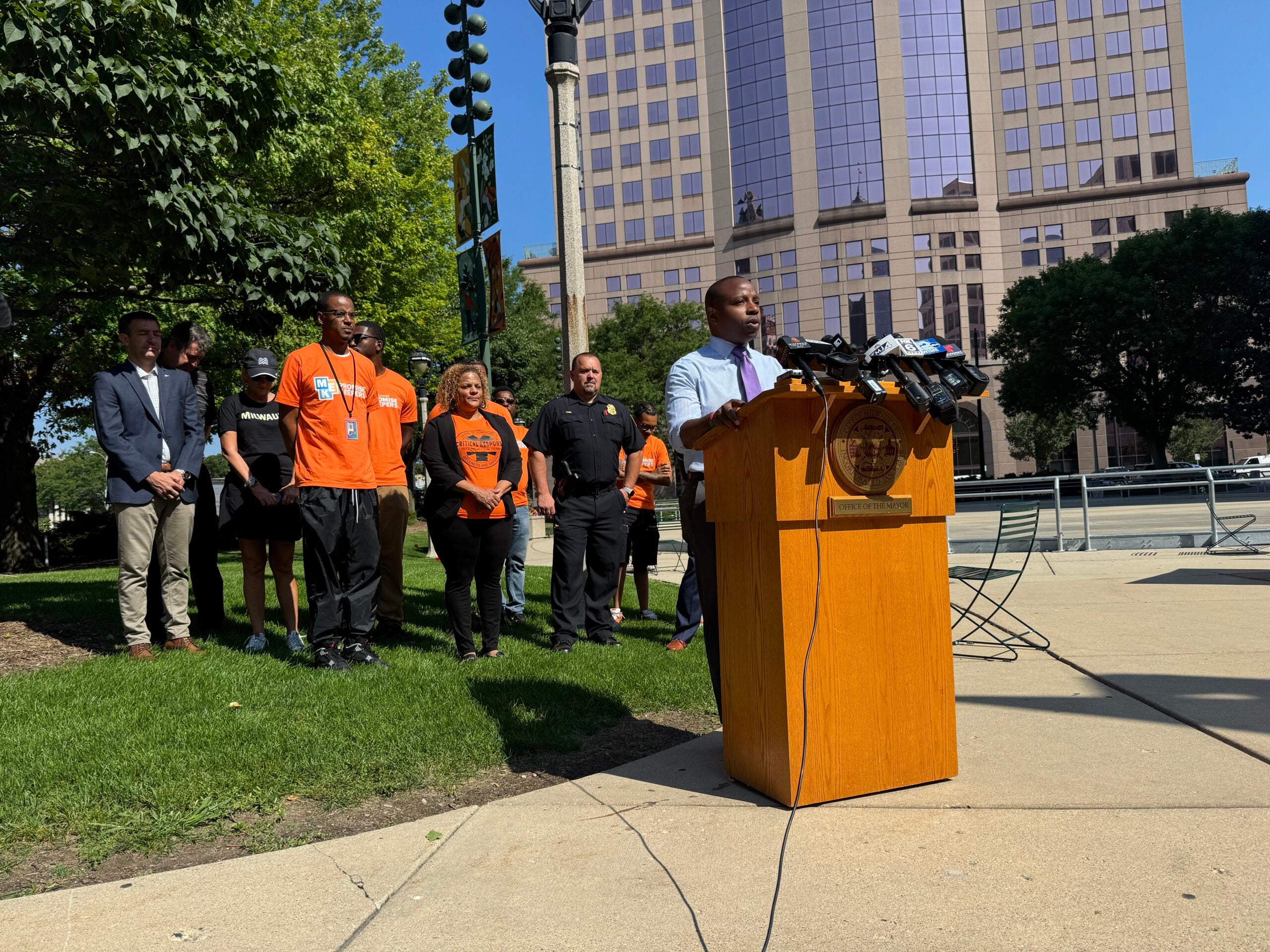As police continue to investigate the killing of six people in a Milwaukee home on Sunday, community activists say the deaths are an outsized example of what has become a too-common problem in the city.
Milwaukee police say the bodies were found with gunshot wounds in a duplex at 2505 N. 21st St. in Milwaukee’s Park West neighborhood on the city’s northwest side. Police went to the house around 3:45 p.m. Sunday after neighbors complained of a strong odor coming from the residence.
On Monday, the Milwaukee County Medical Examiner’s office released the names of the victims, they include:
News with a little more humanity
WPR’s “Wisconsin Today” newsletter keeps you connected to the state you love without feeling overwhelmed. No paywall. No agenda. No corporate filter.
- Caleb Jordan, 23
- Javoni Liddell, 31
- Charles Hardy, 42
- Donald Smith, 43
- Donta Williams, 44
- Michelle Williams, 49
Smith’s body wasn’t discovered by police until around 1:15 a.m. Monday.
According to medical examiner reports, Michelle and Donta Williams were married. They were last seen on Jan. 18 by their son, Kuamaine Harris, who did not live with them, according to reports.
The Williams, Liddell and Smith were all living at 2505 N. 21st St. where the bodies were found, according to medical examiner reports. Hardy and Jordan both lived in the Sherman Park neighborhood, about a mile away from where they were found dead.
Acting Milwaukee Mayor Cavalier Johnson tweeted that he grew up on the block where the bodies were found and said he saw “some of the worst violence that a child should never see.”
“If Milwaukee is ever going to live up to its potential then we must work to make sure that these neighborhoods and the people in them, are safe, healthy and prosperous,” Johnson said.
Milwaukee police have released few details in the case and have said they do not yet have a motive in the killings. They are asking people with information to contact Milwaukee Police at 1-414-935-7360. To remain anonymous, people can contact Crime Stoppers at 1-414-224-TIPS.
In response to the killings Sunday, elected officials and community activists reacted the way they have since the homicide rate began increasing in 2020 — with a call for safer streets, community partnerships and an end to gun violence.
In October, Gov. Tony Evers allocated $8 million to Milwaukee via American Rescue Plan Funds for the city’s Office of Violence Protection. The city matched it with an additional $3 million in funding.
But since the office’s creation, little progress has been made in the way of slowing gun violence in Milwaukee and across the state.
Last week, the Wisconsin Assembly passed a package of bills that would lower the minimum age for concealed carry permits and allow permit-holders to carry guns in vehicles on school grounds.
Meanwhile, many of the after school and weekend programs that kept young people off of the streets in Milwaukee have not been reinstated because of the ongoing COVID-19 pandemic.
The Office of Violence Protection asked the community to come together and support the families affected by the tragedy.
“While understandably difficult in horrific moments like these, we ask community members to not lose faith in our collective ability to grieve, heal, and prevent future acts of gun violence,” the statement reads.
Vaun Mayes, a community activist who works with family members dealing with the fallout of gun violence, said there will be a vigil Tuesday for the six homicide victims. He said some people are worried there will be more violence at the vigil, but family members want to honor the victims.
“People are just trying to figure things out, and I’m pretty sure people would feel a lot better if the those people or person were caught,” Mayes said.
As of Monday, Milwaukee County had 23 homicides for the year. During the same time last year, there were nine homicides.
Milwaukee, like dozens of large cities across the country, just ended a second year of record-setting murder, with 193 homicides in 2021. About 50 percent of the murders in 2020 and 2021 have been solved.
Mayes said the ongoing increase in homicides is “absolutely unacceptable.”
“This puts the importance on this election,” Mayes said, referring to Milwaukee’s mayoral primary on Feb. 15 with seven candidates. “It has to do with their priorities, what they are open and willing to do. A lot of the stuff we’ve been trying to do hasn’t worked to stop this, let alone stop it from getting more prevalent. But we have to look forward to someone who is more innovative.”
Wisconsin Public Radio, © Copyright 2026, Board of Regents of the University of Wisconsin System and Wisconsin Educational Communications Board.





